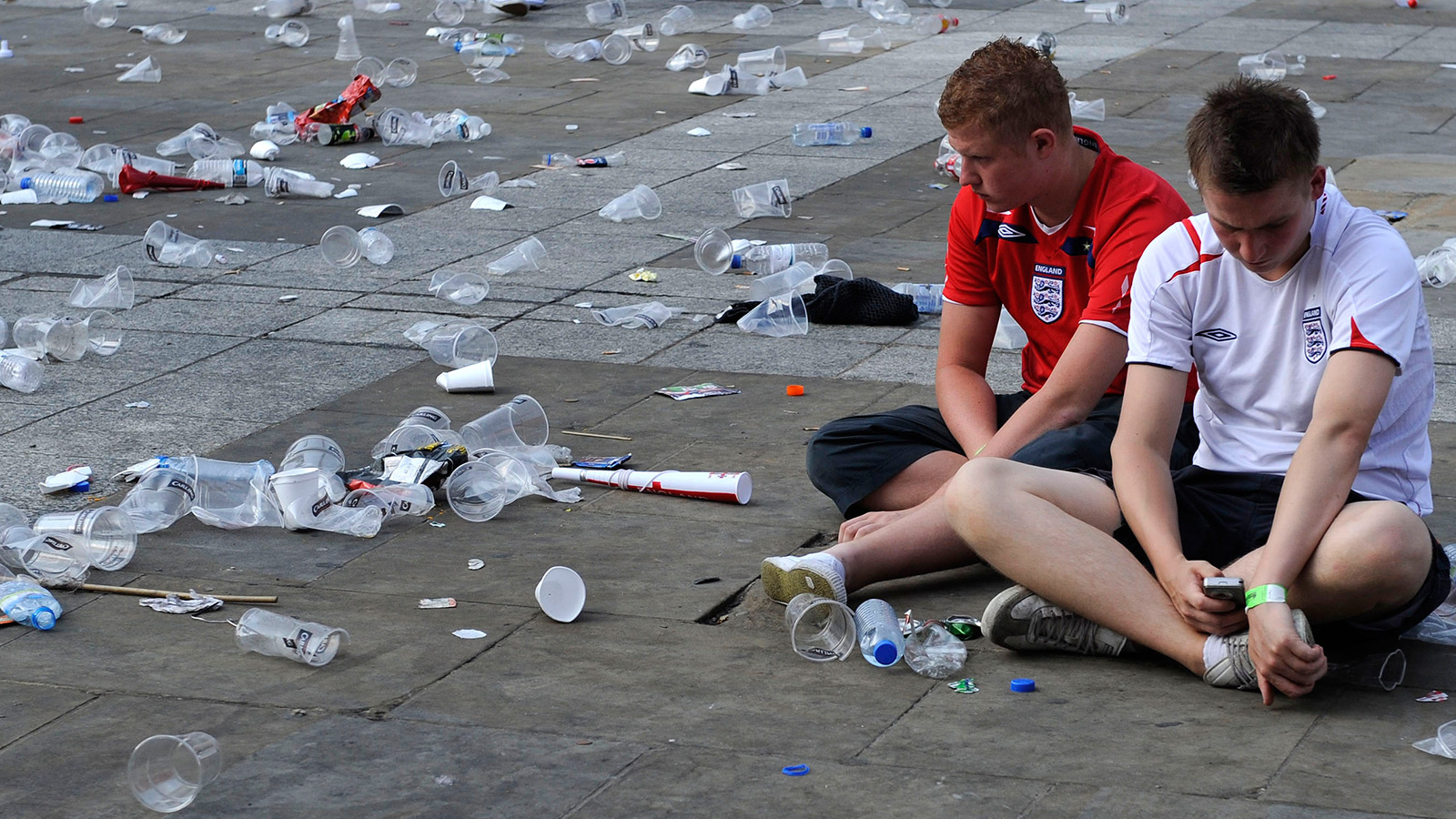The World Cup’s most delusional fans
England is the richest soccer nation in the world, but it can’t help but feel a little let down
Nathan Denette/CP
Share

News that the world-renowned physicist Stephen Hawking had devised a scientific formula for England to win the World Cup was met with widespread delight on this grey, windswept isle. Given that the team is currently ranked 11th in the world, it is going to need all the statistical advantages it can get in Brazil next month. While Hawking’s deductions (at which he arrived at taking into account “environmental, physiological, psychological, political and tactical variables”) may seem outlandish, it is likely they will be taken very seriously in some of the country’s seedier quarters—i.e. the nation’s betting shops. The analysis, after all, was commissioned by Paddy Power, one of the biggest bookmakers in Ireland and the U.K.
According to Hawking, England is most likely to win if the team wears red uniforms, plays blond players first and gets a European referee for its stage match against Uruguay. The impact of environmental factors is also key: A 5° C rise in temperature reduces the team’s chances of winning by 59 per cent. The Cambridge professor also came up with a formula for the optimal penalty shoot-out. Penalty kicks, it’s important to remember, are the altar on which England has sacrificed its chances of World Cup victory in the past. The key technical factor here, according to Hawking, is making sure the player has a run-up of more than three steps and giving the ball “some welly.” Strategic intervention is needed since, “as we say in science, England couldn’t hit a cow’s arse with a banjo.”
The English are a jaded lot, well used to disappointment on the world stage, having conceded most of their imperial powers long ago and given up leading the world in the many innovations and industries they invented. But with football, things are different. (Or at least they were for quite a while: England won the World Cup in 1966 and appeared in the semifinals in 1990.) The English are mad about the game. It is a uniting passion across class, creed and culture. That’s why the spectre of winning—or probably not winning—the World Cup matters so terribly much.
The Liverpudlian football writer James Corbett, who has written a history of both the English football team and the World Cup, explains that from 1998 to 2006, England had some great teams and the ultimate prize seemed well within reach. But today, after years of troubled management, the team has fallen well behind European powerhouses like Germany and Spain. “It’s a very young team now,” he says. “They might be great in four years, but the fact is many of the players weren’t even born the last time we made it through to the semifinals.”
England fans still hold out hope, of course—even in the depths of their most cynical depression, they could never lose faith completely—but there is a lingering sense of disappointment that the team did not live up to its potential when it should have. “In general people feel very let down that the golden generation—the David Beckhams and Michael Owens—didn’t get them beyond the quarter-finals.”
Today it would take nothing short of a statistical miracle for England to win the Cup. (Hawking does not put an exact number on the odds of it happening, noting that “compared to football, quantum physics is relatively straightforward.”) England fans are experts at managing their own expectations with caustic, self-deprecating humour. These days the country’s tabloids are filled with half-serious headlines poo-pooing the team’s chances. Both BBC World Cup presenter and former footballer Gary Lineker and the Italian striker Mario Balotelli have made headlines here in recent weeks for saying England hasn’t got a snowball’s chance in Rio.
There are good reasons for this. England is the richest football nation in the world, which means its high-paying domestic league attracts the best players from around the globe. Unfortunately, this makes it all the more difficult for native players coming up through the ranks—a weakness which shows in the World Cup lineup. Then there’s the fact that football (unlike, say, hockey) is a worldwide obsession, which makes it the most competitive sport in the world.
Corbett says the ribbing the domestic press is giving England conceals a far more urgent hope that the national team might succeed against all odds. The English love an underdog, after all, and have a long and valorous military history of prevailing against great adversity. Like any England football fan, Corbett is vacillating between suppressed optimism and grim fatalism. “There’s a very real chance that England won’t get past the group stage because they have to play Italy and Uruguay,” he says. “But knowing them, they’ll beat Uruguay and lose against Costa Rica in the next round.”